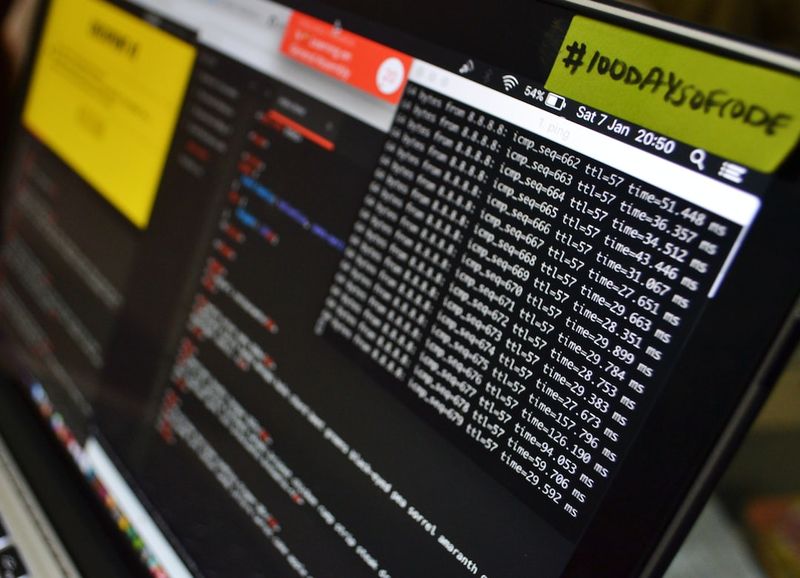Activision Takes Call of Duty: Modern Warfare II Servers Offline Following Self-Spreading Worm Virus
Activision, the renowned video game publisher responsible for popular titles such as Call of Duty: Modern Warfare II, has recently faced a substantial security breach. The company was forced to take the game’s servers offline after reports emerged of a self-spreading worm virus infecting players on the PC platform. This incident has prompted significant concerns regarding the cybersecurity risks associated with online gaming.
The issue was initially identified by attentive players who noticed unusual behavior shortly after Call of Duty: Modern Warfare II was reinstated due to high demand. Discussions on the Steam platform’s discussion page highlighted the presence of a self-propagating worm virus in the PC version of the game. Users engaged in debates surrounding the nature of the malware and its potential availability on repositories like VirusTotal. In response to the growing concern, Activision made the decision to temporarily suspend the game to thoroughly assess the severity of the situation.
Hackers Spread Worm Virus Within Online Lobbies
Further analysis confirmed that malicious actors were indeed infecting players with a self-spreading worm that automatically propagated within online lobbies. Although the motives behind this attack remain under investigation, the problem has escalated significantly in recent times. Activision acknowledged the severity of the situation in a social media post, highlighting the issue’s impact on the game’s community. “In the last 24 hours, new detections directly targeting cheat developers at the source has led to over 14,000 account bans for cheating and hacking in Modern Warfare II and Warzone,” read an announcement on Activision’s X platform, previously known as Twitter, on Friday.
Cybersecurity Threats in Virtual Warfare
The incident surrounding Call of Duty: Modern Warfare II serves as a sobering reminder of the growing cybersecurity threats in the realm of virtual warfare. As online gaming experiences continue to gain popularity, they also become attractive targets for hackers seeking to exploit vulnerabilities and disrupt players’ experiences. The immersive nature of these digital landscapes, combined with the vast number of users and their interconnectedness in multiplayer environments, creates fertile ground for attacks.
One of the key challenges in protecting online gaming environments lies in maintaining a delicate balance between maintaining player security and preserving an open and inclusive gaming experience. The online gaming community thrives on collaboration, competition, and social interaction, making it difficult to implement stringent security measures without compromising the core values of these gaming experiences. However, incidents like the one faced by Activision illustrate the pressing need for heightened security measures to protect players and the integrity of the games themselves.
Philosophical Implications
Beyond the immediate concerns of cybersecurity and player safety, incidents like this raise significant philosophical questions regarding trust, authenticity, and the blurred boundaries between reality and the virtual world. The immersive nature of modern video games often fosters an emotional investment that blurs the line between the digital realm and reality. When these spaces are subject to malicious attacks, it not only disrupts gameplay but also undermines the sense of trust players have in the technology and the integrity of the gaming experience.
Moreover, this event emphasizes the interdependence between the virtual and physical worlds. The activities and experiences in virtual environments often extend beyond the game itself, impacting players’ personal lives and social dynamics. Thus, ensuring the security and well-being of players should not be dismissed as mere entertainment-related concerns but rather as fundamental challenges that demand attention and action.
Protecting Players and Online Gaming Communities
The incident involving Call of Duty: Modern Warfare II’s servers being taken offline due to a self-spreading worm virus underscores the need for proactive measures to safeguard players and online gaming communities. Game publishers, developers, and players themselves can take several steps to enhance cybersecurity and protect against similar threats:
1. Strengthen Security Measures
Video game companies must prioritize cybersecurity and invest in robust measures to protect their platforms and player data. This includes implementing secure infrastructure, conducting regular security audits, and employing advanced threat detection systems.
2. Collaborate with Cybersecurity Experts
Partnering with cybersecurity experts and researchers can help game companies stay ahead of emerging threats. By leveraging external expertise, game publishers can proactively identify vulnerabilities, detect ongoing attacks, and develop effective countermeasures.
3. Educate and Empower Players
Players should be educated about digital security best practices, such as using strong and unique passwords, enabling two-factor authentication, and avoiding suspicious links or downloads. Game publishers can incorporate in-game prompts and tutorials that guide players towards adopting secure practices.
4. Foster a Culture of Responsible Gaming
Game developers and publishers should advocate for responsible gaming and discourage cheating and hacking practices. This can be achieved through strict enforcement of fair play policies, prompt action against offenders, and regular communication with the gaming community.
5. Encourage Reporting and Transparency
Players should be encouraged to report any suspicious activities, vulnerabilities, or incidents they encounter while gaming. Game companies, in turn, should establish clear channels for reporting and promptly address these concerns. Transparency regarding cybersecurity incidents, such as regular updates and disclosure of actions taken, can help maintain trust and confidence.
Conclusion
The incident of a self-spreading worm virus infecting players within Call of Duty: Modern Warfare II’s online lobbies highlights the pressing need for enhanced cybersecurity measures in the realm of online gaming. As the popularity of virtual warfare continues to grow, so do the threats posed by malicious actors seeking to exploit vulnerabilities. It is crucial for game companies, players, and the broader gaming community to collaborate and take proactive steps to prevent such incidents, ensuring the safety, security, and integrity of online gaming experiences.

<< photo by Markus Spiske >>
The image is for illustrative purposes only and does not depict the actual situation.




